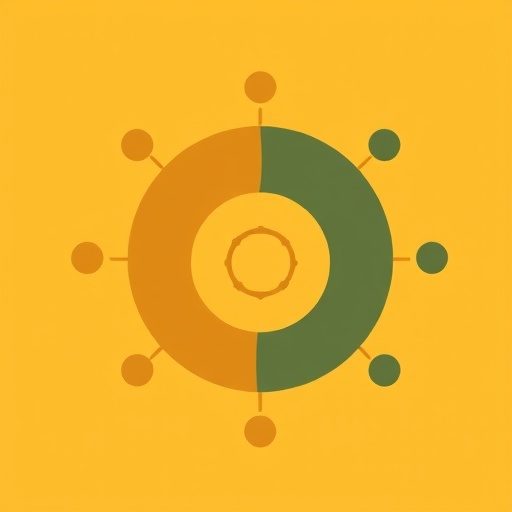In recent years, education systems worldwide have been undergoing significant transformations, driven by the need to align academic strategies with practical outcomes. One noteworthy innovation in this spectrum is the adoption of portfolios as a facet of outcome-based curricula. This approach has been prevalent in medical education, where the complexity of skills and competencies required necessitates a comprehensive and dynamic assessment tool. This article delves deep into the early perceptions of students regarding the use of portfolios in an outcome-based curriculum, as explored in the groundbreaking research conducted by Omer, Vadivelu, and WH.
The study highlights that portfolios have emerged as more than just a collection of work; they serve as a reflective tool, allowing learners to track their progress, set goals, and showcase their competencies. In a landscape where traditional examinations often fall short in capturing the multifaceted nature of medical education, portfolios offer a solution that encourages self-directed learning. As students engage with their portfolios, they cultivate a sense of ownership over their educational journey, which can lead to deeper, more meaningful learning experiences.
At the heart of the research is the assessment of early perceptions held by students regarding these portfolios. Many students initially view portfolios with a skeptical eye, perceiving them as an additional burden during an already demanding academic program. Yet, as the study progresses, those perceptions begin to shift significantly. Students report that the portfolio process encourages introspection and critical thinking, helping them understand their strengths and areas that require improvement. This shift is crucial, as it indicates that students can find value in this innovative assessment method if given the right tools and guidance.
One of the most profound impacts of portfolio integration is the promotion of lifelong learning habits among students. Unlike traditional assessments that often yield a single grade, portfolios encourage continuous reflection and self-assessment. This continuous cycle not only prepares students for immediate challenges but also lays the foundation for a habit of self-evaluation and growth well into their professional careers. By embedding reflective practices into their learning processes, future healthcare professionals can remain adaptable, responsive, and committed to ongoing education throughout their lives.
The findings of Omer et al. reveal that the benefits of portfolios extend beyond individual students; they also positively influence the broader educational environment. Incorporating portfolios into the curriculum has the potential to shift the culture of medical education toward collaboration and peer support. As students share their portfolios with one another, they foster a community of practice, where feedback flows freely and learning becomes a shared endeavor. This camaraderie not only enhances individual learning outcomes but also nurtures a supportive network that is critical in the high-stress world of medical training.
However, successful implementation of portfolios requires thoughtful guidance from educators. Faculty members play a crucial role in setting the expectations and providing the necessary scaffolding for students to engage effectively with their portfolios. The research underscores the importance of professional development for educators, ensuring they are equipped with the skills to facilitate reflective practice and provide constructive feedback. When educators model the process of critical reflection, they not only enhance their teaching effectiveness but also serve as examples for students.
Moreover, the study highlights the diversity of opinions among students regarding the format and structure of portfolios. Some students prefer digital portfolios, finding them more accessible and easier to update, while others value traditional paper portfolios for their tactile and tangible qualities. Moving forward, it is essential for educational institutions to remain flexible and responsive to these varying preferences, allowing students to choose the format that best suits their learning style. This adaptability is key to maximizing student engagement and ensuring that the portfolio process aligns with individual needs and preferences.
Through this research, Omer and colleagues shed light on the importance of early intervention in reshaping students’ perceptions. By introducing portfolios early in the curriculum, educators can help students recognize their potential as reflective practitioners. When students understand how to constructively engage with their portfolios from the onset, they are more likely to appreciate their value and incorporate the practice into their learning routines.
As the landscape of medical education continues to evolve, the integration of portfolios emerges as a beacon of innovation. The research indicates that institutions that embrace this method can provide their students with a more holistic educational experience. By focusing on outcomes instead of simply knowledge acquisition, curricula can be designed to produce competent, confident healthcare professionals who are equipped to meet the complex demands of patient care.
In conclusion, the study by Omer, Vadivelu, and WH represents a significant step forward in understanding the impact of reflective practices in education. Portfolios have the potential to transform how students learn, encouraging them to become active participants in their educational processes. As perceptions change and acceptance grows, there is little doubt that the future of medical education will increasingly rely on these reflective methodologies to nurture competent, self-aware, and adaptable healthcare providers.
Subject of Research: Early perceptions of portfolios in an outcome-based curriculum
Article Title: Early perceptions of portfolios in an outcome-based curriculum.
Article References:
Omer, A.A., Vadivelu, J. & WH, H. Early perceptions of portfolios in an outcome-based curriculum. BMC Med Educ 25, 1204 (2025). https://doi.org/10.1186/s12909-025-07583-z
Image Credits: AI Generated
DOI:
Keywords: portfolios, outcome-based curriculum, reflective practice, medical education, lifelong learning.




